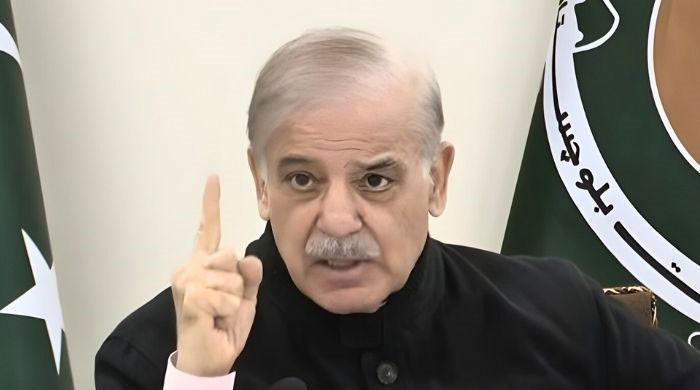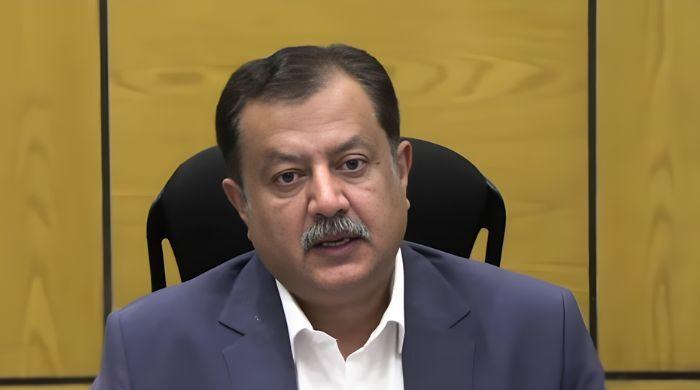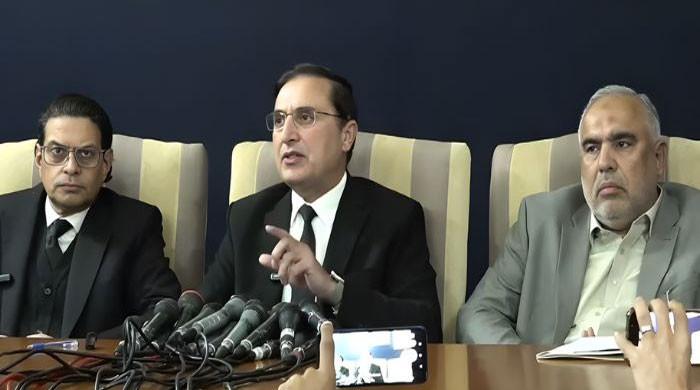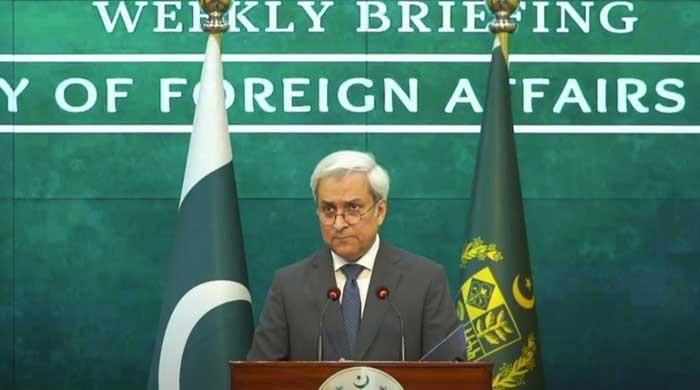Analysts weigh in on SC verdict on NAB amendments
Verdict raises questions over future of several Pakistani politicians whose political careers are now in NAB's hand
September 15, 2023
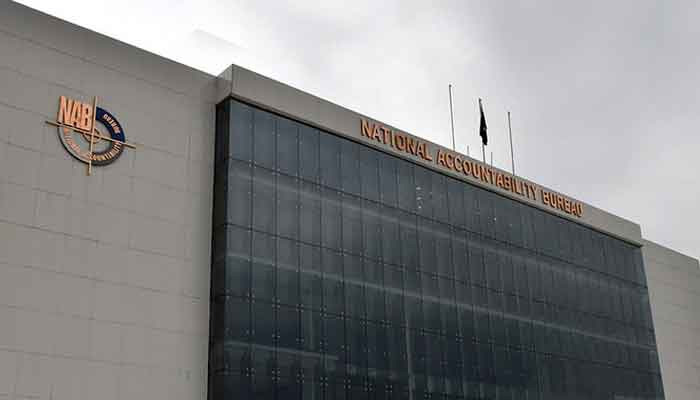
- Hamid Mir calls SC verdict "extremely controversial".
- Ansar Abbasi raises questions over purpose of SC ruling.
- "Criminal clan back in dock," PTI spokesperson says.
After the Supreme Court on Friday approved Pakistan Tehreek-e-Insaf (PTI) chief Imran Khan's plea challenging amendments made to the National Accountability Bureau's (NAB) laws passed during the Pakistan Democratic Movement (PDM)-led government, it has added fuel to the fire owing to the country's already chaotic political landscape.
The verdict has raised questions over the future of several politicians in the country whose political careers are now in the hands of NAB, as their cases, as per the court's decision, would be reopened under the anti-graft body's laws.
The three-member bench — headed by Chief Justice of Pakistan Umar Ata Bandial, and comprising Justice Mansoor Ali Shah and Justice Ijazul Ahsan — held more than 50 hearings on PTI chief Khan's petition against the amendments and reserved the judgment on the hearing on September 5.
In a majority 2-1 verdict today — with a dissenting note by Justice Shah — the SC restored graft cases against public office holders that were closed down following the amendments. The country's top court also struck down some amendments made to the National Accountability Ordinance (NAO), 1999.
'Extremely controversial'
Sharing his view on the decision, senior journalist and analyst Hamid Mir said that the verdict issued by CJP Bandial was "expected" and everyone is familiar with the political inclination of the two judges in the bench.
"This was an extremely controversial issue and two extremely controversial judges have issued a verdict on it. Since this decision was issued following a 2-1 majority, a review petition can be easily filed against it," Mir said.
He added that the notion regarding CJP Bandial's inclination towards a particular political party gained strength after the issuance of the verdict. Mir also highlighted the ways in which NAB has been used by politicians in the past for political victimisation.
"It was also mentioned in some SC verdicts that NAB is used for political engineering," he said, adding that most cases restored after the apex court's verdict are still being heard in courts to date.
Mir, too, termed NAB an "institution for political vengeance" and one that births new political entities, and it should be suspended.
He added that since there is no parliament to defend the strike down of the NAB amendments, the matter will again go to a larger SC bench.
Ansar Abbasi, a senior investigative journalist, termed the verdict as the SC "playing to the galleries".
The courts, he added, are supposed to provide justice and have a role in addressing flaws in systems. He added that in the verdicts issued by the Supreme Court and high courts in the past, NAB has been referred to in a negative light.
"What is the purpose of restoring the [NAB] law in the same state that it was in when criticised?" he asked, questioning the SC's ruling.
He said that if the law is given a draconian shape, Imran Khan and PTI would be the one to bear most of its brunt.
"In the last 22 to 23 years, NAB has politically victimised people, it has been used as a tool for political engineering, it has played a role in making and dismantling political parties as well as governments," he said.
Striking down amendments violation of rights: Aiyan Bhutta
Speaking to Geo.tv, Lawyer Aiyan Bhutta said that certain provisions of the NAB amendments were struck down on the basis that they were in violation of the fundamental rights of citizens.
He said that the apex court also expressed its frustration with the majority judgment that the corrupt politicians would escape all liability which could be allowed.
"The reality is that even with all the powers that NAB had previously, the rate of conviction was abysmally low and will continue to be low as NAB was and will continue to be used as a political tool to persecute public office holders rather than seriously promote a culture of accountability in our system," Bhutta said.
Sharing his views on the dissenting note by Justice Shah, the lawyer said that it was refreshing to read as he emphasises on the separation of powers between the constitutional organs of the state.
“Hopefully, this indicates that judicial restraint will be exercised by the Supreme Court while exercising its powers under Article 184(3) of the Constitution in the future,” he added.




